Hakaton on the analysis of open data of users of the social network VKontakte. For schoolchildren and freshmen
"- They are very young, they have everything ahead, and we have ahead - only they."
"Ugly Swans" A. and B. Strugatsky

Hi, Habr.
For more than two years I have known a great team that does cool things for schoolchildren.
It all started with the Yandex Camp ( “Our educational camp with poker, a 3d printer, robots and landing on Mars” ) where we played poker with the guys (especially for educational purposes). There I scribbled an “engineering Olympiad”, where I had to make functional objects out of scotch and toilet paper, dragged a 3D printer (on which we tried to print master keys) and taught a couple of guys how to climb a window at night and smear it with toothpaste. Oh yes, we also wrote several articles on Habr, first under strict supervision, and then independently.
')
- Like Mitnick trolled the FBI. Articles on Habr from the camp for schoolchildren
- Interview with Roman Udovichenko. Code Jam TOP 10 or how well olympiadnik live
- 1903 Hacker / Phreaker: Hacking a "secure" wireless communication channel
The following year I took the handcuffs and the NeuroSky neural interface to the camp.
There was a competition for high-speed programming in handcuffs, and also revealed who would be able to stretch the longest in the camp without removing the bracelets. We also soldered the belt for the development of neuroplasticity. "Children's camp: bisectoral-Pythagorean triangles, brain reprogramming, radar detector and breaking handcuffs . "
And they also launched a “pirate” flash mob on the translation of the book from the editor-in-chief of WIRED (the former blackhat hacker) about the underground billionth market of carders: “Kingpin: schoolchildren translate a book about hackers” .
And now the team of organizers decided to launch a hackathon (and a series of lectures and workshops) on the analysis of open data and we need tips, ideas and hypotheses from habrachiteli.
Under the cut there are a few descriptions of the event and lecturers, as well as useful materials for preparing for the hackathon. In the comments, you can offer your problems, ideas and hypotheses for verification. (Think of yourself as a schoolboy, what would you be interested in working on if you got into such a hackathon?)
Alena, the organizer, confessed to me why they all do this:
- All data science and related disciplines are positioned (perceived) as very complex things and teach this only at senior courses and in SADs, but in fact there is nothing terrible there and the idea is more important. You can safely try, do research. Moreover, data analysis is useful in all areas, and we will show this in open lectures (with examples from CERN to advertising with banks). And the idea there is more important than possession of complex tools.
- Secondly, we work with a generation of schoolchildren and first-year students, but we don’t know so much about it. And it turned out that sociologists know no more. They do time polls online by asking a question in a paper questionnaire. In Russia, it was somehow very difficult to research social networks, we found only a few sociologists, and called them to the hackathon.
- Thirdly, this thing is educational, we want to drag and “bite” more guys with all sorts of popular technologies that are not familiar at all at their age. Yes, and the experiment with the mixing of schoolchildren and younger students is conscious, I want to confirm the hypothesis that the differences in their training and abilities in new fields are insignificant (or not?).
Organizational information
Hackathon will be held February 19-21, in Moscow, for free.
Senior students and students aged 15–18 years from all over Russia who are able to program in at least one language, as well as having ideas about algorithms, data structures and databases, are invited to participate.
To participate you must apply for participation on the site. After that, the organizers will send you a qualifying task to analyze the subtitles for the TED conference clips, the decision of which must be sent within exactly 10 days from the moment the organizers sent you a letter. The main and reserve list of participants will be published on February 12, their participation must be confirmed within 2 days from the date of publication of the lists.
During the hackathon, it is necessary to formulate and test one or several hypotheses about one's generation or to develop a recommender system or service based on open data from VKontakte 15-18 year old users. Work on the task will be held in teams of 2-3 people, the formation of which will take place in the first hours of the hackathon.
Each team will be provided with a consultant who will help to overcome technical difficulties during the entire hackathon.
Senior students and students aged 15–18 years from all over Russia who are able to program in at least one language, as well as having ideas about algorithms, data structures and databases, are invited to participate.
To participate you must apply for participation on the site. After that, the organizers will send you a qualifying task to analyze the subtitles for the TED conference clips, the decision of which must be sent within exactly 10 days from the moment the organizers sent you a letter. The main and reserve list of participants will be published on February 12, their participation must be confirmed within 2 days from the date of publication of the lists.
During the hackathon, it is necessary to formulate and test one or several hypotheses about one's generation or to develop a recommender system or service based on open data from VKontakte 15-18 year old users. Work on the task will be held in teams of 2-3 people, the formation of which will take place in the first hours of the hackathon.
Each team will be provided with a consultant who will help to overcome technical difficulties during the entire hackathon.
Lecturers and jury
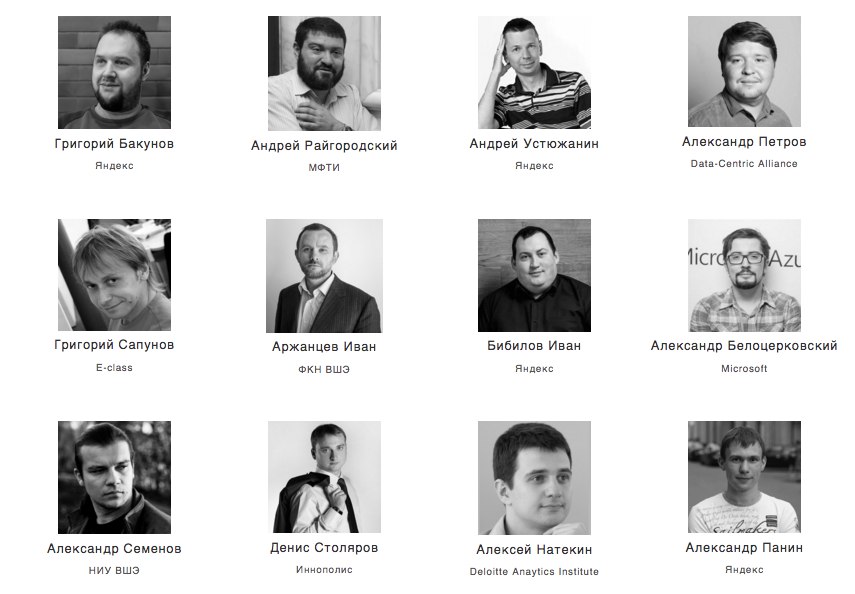
I heard about research somewhere that after seeing a 5-second video with a teacher, a student subconsciously forms an idea of how effectively he will learn from him. Here are some videos of people I know personally.
Ivan Bibilov , Yandex
"Basics of functional programming"
Gregory "Bobuk" Bakunov , Yandex
Andrey Ustyuzhanin , Yandex
"Processing Big Data BAK"
Alexander Belotserkovsky , Microsoft
Useful materials
Habrahabr
 Big Data from A to Z. Part 1: Principles of working with big data, the MapReduce paradigm
Big Data from A to Z. Part 1: Principles of working with big data, the MapReduce paradigm“With this article I open the cycle of materials devoted to working with big data. What for? I want to save the accumulated experience, my own team and, so to speak, in the encyclopedic format - for sure it will be useful to someone.
We will try to describe the big data problems from different angles: the basic principles of working with data, tools, examples of solving practical problems. Special attention will be given to the topic of machine learning.
You need to start from simple to complex, so the first article is about the principles of working with big data and the MapReduce paradigm. „
Ananlitika and visualization of “War and Peace”

voinaimir.com/info is a visual and linguistic analysis of the novel War and Peace
Rusbase
Pull up bigdatu. Courses and useful links on data science
“Rusbase publishes a list of educational courses and useful links for those who want to develop in the field of big data analysis. If you have not yet encountered Data Science, we recommend that you familiarize yourself with our big data dictionary, and also see which players work in this market in Russia. ”
Coursera
Introduction to machine learning
“Not so long ago, the term“ big data ”became widespread, denoting a new application area - the search for ways to automatically quickly analyze huge amounts of heterogeneous information. The science of big data is still taking shape, but now it is very much in demand - and in the future only more will be in demand.
With its help, you can solve incredible tasks: assess the state of the liver using a cardiogram, predict salary based on the job description, offer the user music based on his profile on the Internet. ”
FKN HSE
"Data Science, black boxes - and why you are very lucky"
Lecturer - Andrey Sebrant, company Yandex
“I’ll tell you why Data Science is now one of the main reasons for the radical change in information technologies - and through them, in turn, industry and people's life in general. Situations where algorithms effectively replace people and change entire industries are considered using examples of both Yandex services and some of the other largest global companies. At the same time, along with an increase in efficiency and other achievements, there are also unpleasant side effects that can ultimately affect the institutions that have developed in human society for centuries - it is also important to be aware of this. ”
PostScience
“What are the strengths and weaknesses of data analysis? How to check the observed patterns? How do data analysis techniques help shape new concepts? These and other questions are answered by Doctor of Technical Sciences Boris Mirkin. ”
Article - Data Analysis
What are nishtyaki
- [till February 10] Participate and practice (if you falsify a passport, have plastic surgery and look younger than 18 years old)
- [until February 16] Listen to the open lectures of the coolest teachers
- Offer task / hypothesis to test
- Join the project as an expert
If you have talented schoolchildren / students in mind, invite them, arguing something like this:
Bonus task:
What is the sum of the digits in the number 2 ^ 1000?
A few photos that convey the atmosphere in the camps and show the adequacy of teachers
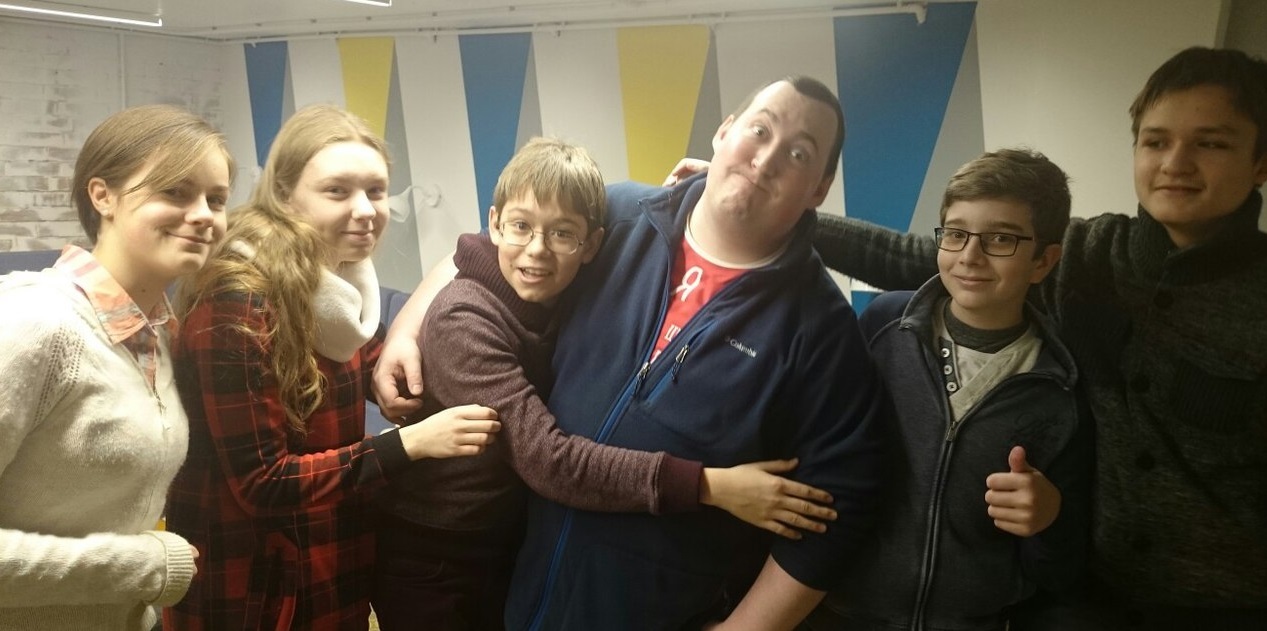
still
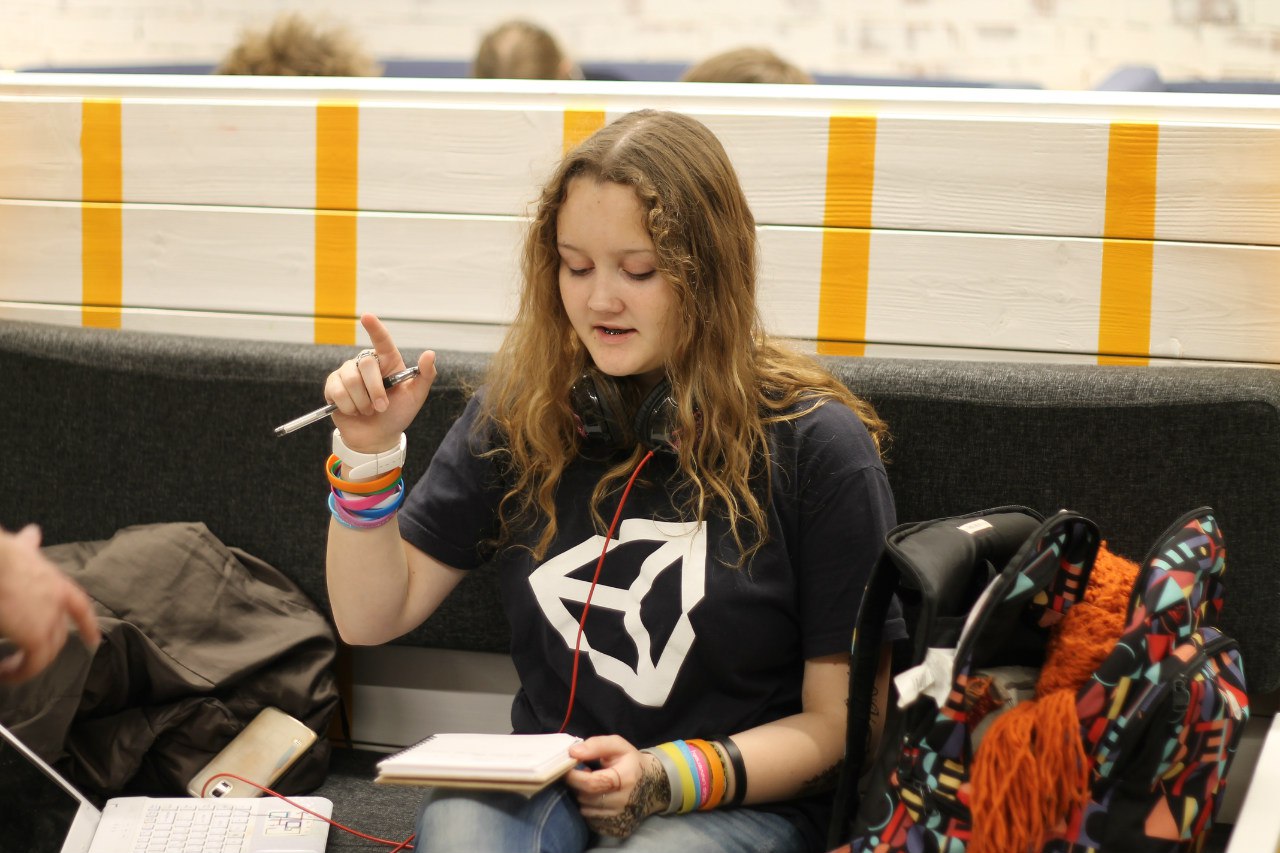


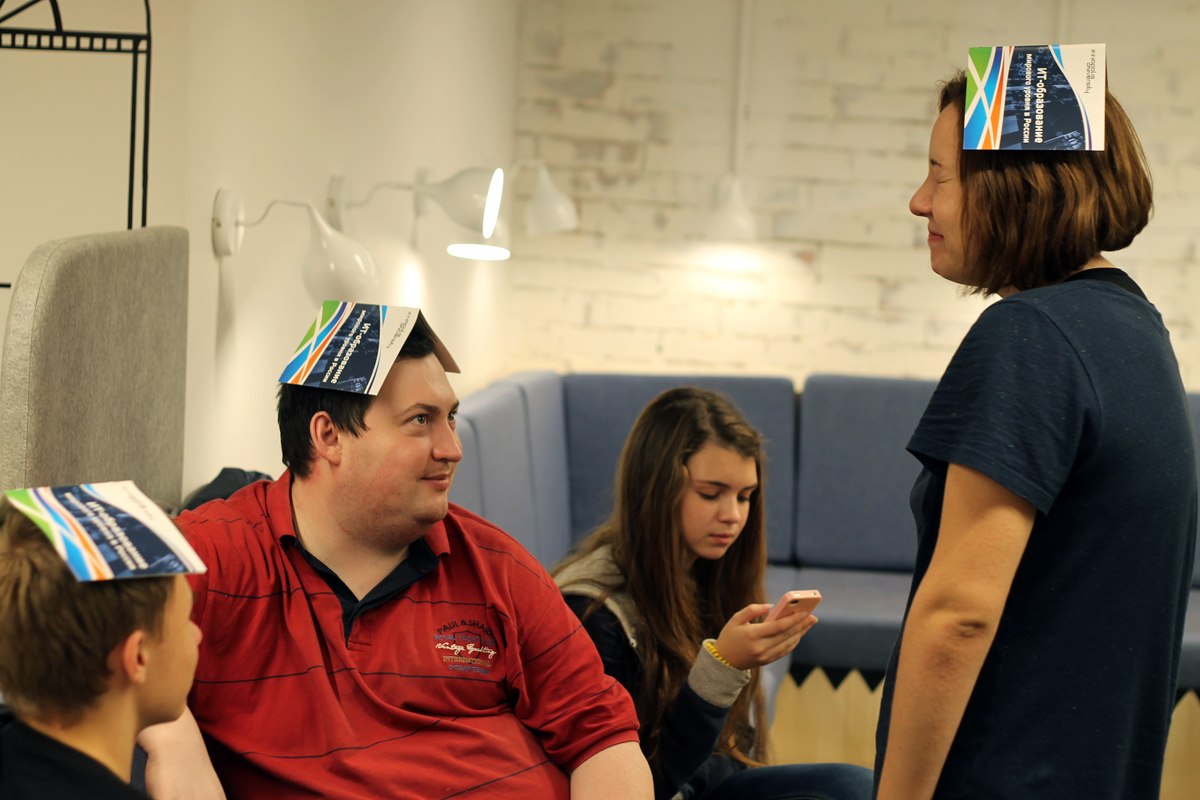





PS
Here are a couple of articles about the "graduates" of the camps and hackathons:
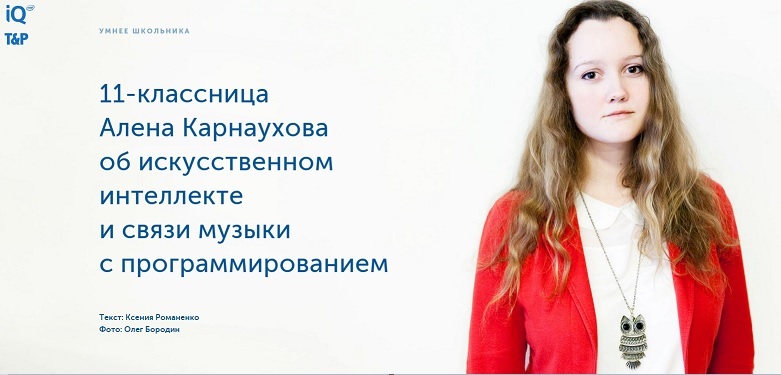
I was fascinated by programming myself: I went to read articles and discussions in forums, began to learn other programming languages. Now there are so many training resources that you can just type something like “programming for beginners” into the search bar and start learning. I've learned the Java language on the JavaRush website. There, training in programming is given in the form of a game - with cartoons and points for correctly performed tasks. In general, programming is a practice, a practice, and another practice. Plus, do not be afraid to experiment.Article "11th grader Alena Karnaukhova about artificial intelligence and the connection of music with programming"
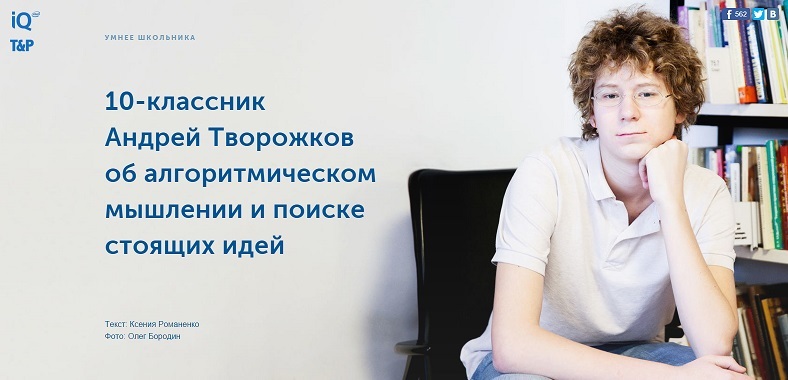
The guys from the school circle are doing an optocopter for a biostation at Moscow State University. Three times a year we go from school to a biostation where we are taught biology. But I still do mathematics there. Making an optocopter is really hard. This is a huge thing that should fly over the forest, and for quite a long time (30 minutes), shoot a video and transmit it in real time - right during the flight. Such tasks are really interesting to me: both because they are complex, and because you can control the process at all stages, and because they serve a real purpose.Article "10th grader Andrew Tvorogkov about algorithmic thinking and the search for worthwhile ideas"
Source: https://habr.com/ru/post/276079/
All Articles